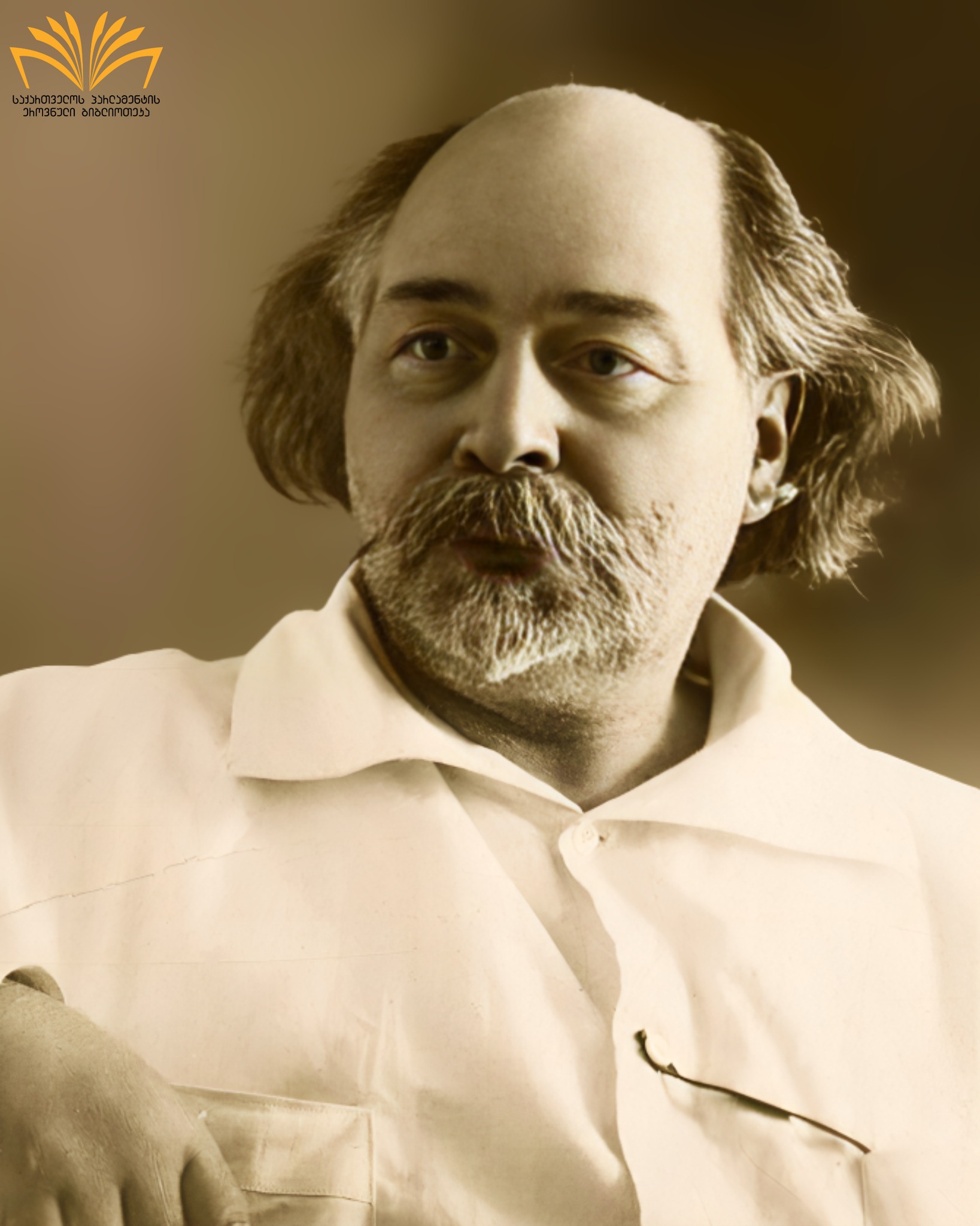Arakishvili Dimitri

Dimitri E. Arakishvili [11 (23) February 1873, Vladikavkaz – 13 August 1953, Tbilisi] was a composer, musicologist-ethnographer, teacher, and public figure. His numerous compositions laid the groundwork for Arakishvili’s opera Tkmuleba Shota Rustavelze, “The Legend of Shota Rustaveli." This opera is based on Georgian legends about one dramatic episode from the life of Rustaveli (libretto by A. Khakhanishvili, S. Shanshiashvili, and I. Mchedlishvili). Along with Georgian composers of older generations, Arakishvili is considered the founder of the Georgian national composition school. He was a People's Artist of Georgia (1929), a Full Member of the Georgian Academy of Sciences (1950), and a USSR State Prize holder (1950).
Arakishvili spent his formative years in the North Caucasus—Armavir and Ekaterinodar (Krasnodar). He fell in love with music in Armavir in 1890, when he first listened to L. Aghniashvili’s Georgian group (conducted by I. Ratili). During this period, he produced his initial compositions: the romance Cemo Mkvlelo, Vitsi, Vitsi [My Killer, I Know, I Know] (poem by I. Chavchavadze) for Georgian folk dance on the piano. From 1894 to 1901, he studied at the Moscow Philharmonic School of Music.
During his years in Moscow (1894–1908), Arakishvili established relations with prominent composers and musicians (S. Taneyev, A. Kastalsky, M. Ippolitov-Ivanov, V. Pashalov, M. Piatnitsky). He actively compiled, researched, and promoted Georgian folk music during this period. His work with folk music was connected to Moscow University's music-ethnographic commission. With the support of this commission, Arakishvili conducted four expeditions to Georgia (1901, 1902, 1904, and 1908), collecting a vast amount of musical material (more than 500 folk songs) from various regions.
In 1906, along with prominent Russian musicians, he founded the "People’s Conservatory" in Moscow. Two years later, he established free music courses for impoverished students. By 1908, he had started a magazine called "Muzika i Zhizn" (Music and Life). He was its chief editor for several years. During this period, he composed more than twenty different works, including the opera Tkmuleba Shota Rustavelze, "The Legend of Shota Rustaveli" (1914), performed in the Tbilisi Opera Theater in 1919, the symphonic poem "Hymn of Ormuzd" ("Among the Sazandars", 1911), and many choral compositions.
In 1918, Arakishvili moved to Georgia and took on the main task of preparing a new generation of Georgian musicians. In 1921, he helped establish the Second Conservatory in Tbilisi, which had a choir, a string quartet and an opera studio. From 1926 to 1930, he served as the director of the Tbilisi Conservatory (both conservatories merged in 1924), head of the academic department and composition faculty dean. In 1932, he headed the Association of Georgian Composers. During this period, he expanded his work into various genres, including opera “Dinara,” symphonies, and cantatas.
Arakishvili’s biggest and most important legacy is his chamber-vocal lyrical works. In this genre, the composer created truly classical masterpieces. His works are known for their melodic and expressive richness and plasticity of form. His especially noteworthy works are Iveriis Mtebi (Mountains of Iveria), Nu Mgheri Lamazo (Do Not Sing, Beauty) (A. Pushkin), Vard-Kvavilta Samefos modi (Come to the Kingdom of Flowers), Siov Nazo (Gentle Breez) (Hafez), Varskvlaviani Ghame (Starry Night) (A. Fett), Me Shen Geli (I Am Waiting for You) (M. Davidova), and others.
Dimitri Arakishvili is buried in the Didube Pantheon.
Source: ქართული მუსიკა (მოკლე ისტორიული მიმოხილვა), ქუთ., 1925; ხალხური სამუსიკო საკრავების აღწერა და გაზომვა, თბ., 1940 რაჭული ხალხური სიმღერები, თბ., 1950; სვანური ხალხური სიმღერები, თბ., 1950; Грузинское народное музыкальное творчество, М., 1916; Краткий исторический обзор грузинской музыки, Тб., 1940; Обзор народной песни Восточной Грузии, Тб., 1948.
Literature: ბეგიჯანოვი ა., დიმიტრი არაყიშვილი, თბ., 1955; დონაძე ლ., დიმიტრი არაყიშვილი, «საბჭოთა ხელოვნება», 1983, № 10; ქართული მუსიკის ისტორია. წგ. 1, თბ., 1990; ხუჭუა პ., დიმიტრი არაყიშვილი, თბ., 1980; Донадзе В., Музыкальное наследие Грузии (Классич. период), კრ.: Грузинская музыкальная культура, М., 1957.
I. Donadze


